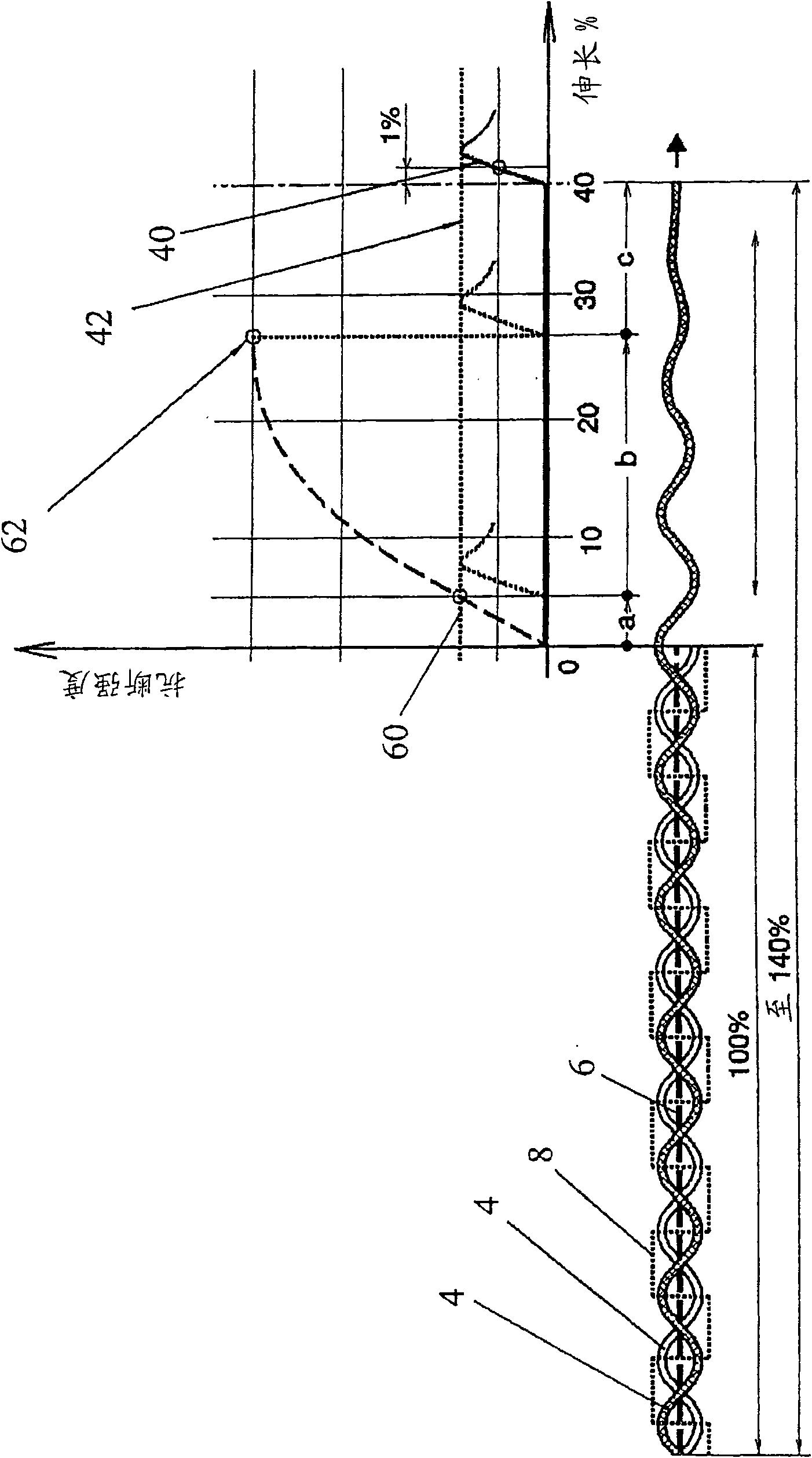Electrically conductive, elastic compound thread, particularly for rfid textile labels, the use thereof, and the production of a woven fabric, knitted fabric, or meshwork therewith
A technology of composite thread and conductive thread, which is applied to the antenna of RFID textile tags, the production of fabrics, knitted fabrics and braided fabrics, and can solve the problems that it is impossible to have no interference, and the conductive function cannot be absolutely guaranteed.
- Summary
- Abstract
- Description
- Claims
- Application Information
AI Technical Summary
Problems solved by technology
Method used
Image
Examples
Embodiment Construction
[0021] figure 1 A composite thread 2 according to a first embodiment of the invention is shown, in which a loose conductive thread 4 and a tension-relief thread 6 which is in tension compared to it are interwoven with a binding thread 8 . In other words, the tension relief wire 6 is in a state of higher tensile stress than the conductive wire 4 . The conductive thread 4 and the tension relief thread 6 are designed here such that the conductive thread 4 is subjected to a tensile load only at point a+b, at which point the tension relief thread 6 has reached its breaking limit 62 approximately at 28% elongation. In addition, the tensile strength of the tension relief thread 6 is greater than that of the conductive thread 4 . That is, this is equivalent to image 3 Case II of the breaking strength curve.
[0022] This composite thread 2 is produced on a knitting machine or a raschel machine. In this example, the composite thread has about 22 needles per cm. The tension relief...
PUM
 Login to View More
Login to View More Abstract
Description
Claims
Application Information
 Login to View More
Login to View More - R&D
- Intellectual Property
- Life Sciences
- Materials
- Tech Scout
- Unparalleled Data Quality
- Higher Quality Content
- 60% Fewer Hallucinations
Browse by: Latest US Patents, China's latest patents, Technical Efficacy Thesaurus, Application Domain, Technology Topic, Popular Technical Reports.
© 2025 PatSnap. All rights reserved.Legal|Privacy policy|Modern Slavery Act Transparency Statement|Sitemap|About US| Contact US: help@patsnap.com



